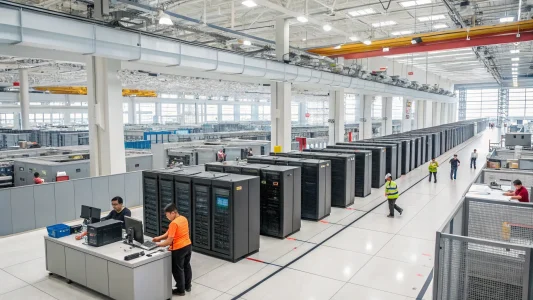Upon returning to the White House, Donald Trump quickly tasked his administration with finding ways to lower prices for US consumers. However, some economics experts worry that his immigration policy could harm both inflation and the US economy.
Trump’s Immigration Policy Will Impact Key Industries
Capital Economics deputy chief of North America and economist Stephen Brown stated “A reduction in labor supply means upward pressure on wages, which has different sector implications including inflationary pressure, especially for food prices.” There are an estimated 8.3 million illegal immigrants in the United States, and compose about 5% of the country’s workforce. Illegal immigrants represent about 20% of the US’s agriculture workforce, so a large decrease in the labor supply could seriously impact some food production within the US. If mass deportation were to happen, Brown expects that “the inflationary impact could affect food overall, but particularly fresher fruits, rather than the ingredients in more processed foods.”
Outside of agriculture, home building and construction are two industries that may lose a significant portion of their labor force. On this topic, Brown said “with regard to home improvement projects those prices, they might become unaffordable to the point where people feel they can’t do them anymore. And the lack of supply will be a big issue there, too.” Many Americans are already upset with the state of home prices, and a sharp increase in remodeling and home improvement projects could stoke that fire as well.
Trump’s immigration policy could also largely impact the restaurant and food industry. Some restaurants may have to increase prices for customers since a shortage of workers would lead to increased wages. This may lead to higher levels of customer dissatisfaction, lower levels of profit for the restaurant itself, and could threaten to put it out of business. While not all restaurants will increase their wages, a shortage of workers still could be a threat to produce lower quality service, and potentially go out of business.
Ripple Effects of Mass Deportation
“A lot of immigrants do jobs that support jobs held by Americans”, said David Bier, director of immigration studies at the Cato Institute. The construction industry has about 2 million undocumented workers, but their directors and managers are typically American. Trump’s immigration policy would remove a large part of their workforce and company, acting as a threat to their business. “The same thing is true in hospitality. Americans are more likely to be in management and supervisory roles, so if you pull a bunch of workers you’re supervising, there will be fewer jobs for those supervisors and you’ll see everyone leveling down”, Bier said.
Agriculture, construction, food and restaurants, and hospitality all may be impacted negatively due to mass deportation. Bier expects that “The economic effects are going to be much more diffuse than people expect”, on top of the difficulties of managing the social and political effects.
What do you think of Trump’s immigration policy? Is it worth the potential economic impact? Let us know in the comments.
Featured Image Credit: Rosemary Ketchum; Pexels: Thank You!














